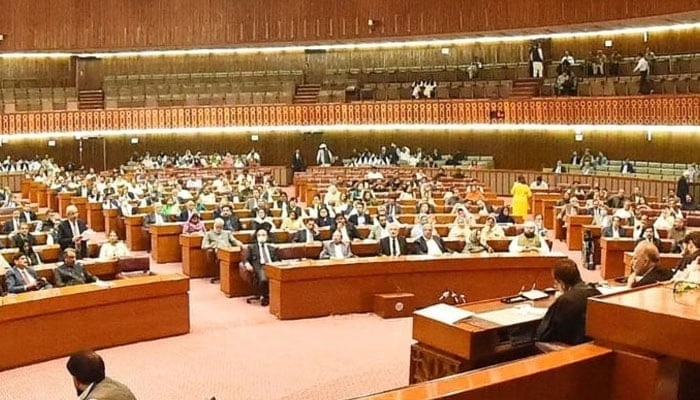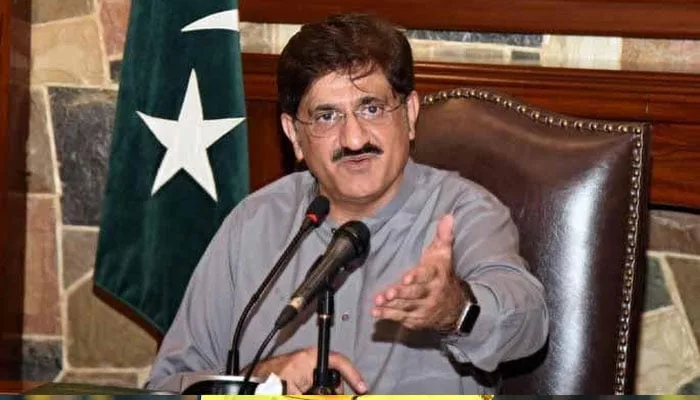A recent audit report by the Auditor General of Pakistan (AGP) has revealed serious financial discrepancies in the travel voucher system of the National Assembly Secretariat. The report uncovers that privilege travel vouchers worth a staggering Rs1.16 billion were issued to Members of the National Assembly (MNAs) during the financial years 2021-22 to 2023-24. However, a discrepancy of Rs161 million exists between the vouchers issued and the officially reported expenditure.
Discrepancy in Travel Voucher Expenditures
According to the AGP report, the National Assembly management recorded an official expenditure of Rs1 billion on the reimbursement and encashment of these privilege travel vouchers over the specified three-year period. However, audit officials found that the amount reimbursed by the State Bank of Pakistan (SBP) and booked by the Accountant General Pakistan Revenues (AGPR) was not properly reconciled with the expenditure claimed by the National Assembly Secretariat.
This lack of reconciliation raises serious concerns about transparency, internal oversight, and financial accountability within one of the country’s highest legislative bodies.
Audit Findings and Classification of the Irregularity
The AGP termed the lapse as both irregular and unauthorised,pointing directly to major deficiencies in internal controls over financial reporting in the National Assembly Secretariat. These privilege travel vouchers are intended to allow MNAs to claim travel reimbursements or encash them for monetary value, a routine but sensitive part of parliamentary perks. However, when such financial benefits go untracked or are poorly reconciled, they pose a threat to institutional integrity and responsible governance.
The report criticized the Secretariat for not implementing proper financial controls and mechanisms that could have prevented this discrepancy. The lack of real-time reconciliation and documentation raises the risk of potential misuse or overstatement of benefits received by parliamentarians.
Departmental Accounts Committee’s Response
The matter was taken up by the Departmental Accounts Committee (DAC) on January 31, 2025, during which the committee issued clear directives to the National Assembly management. The DAC ordered the immediate reconciliation of figures related to the encashment of travel vouchers. It also asked the Secretariat to provide complete and accurate records to the audit authorities for verification and accountability.
The DAC emphasized that any delay in reconciliation not only undermines the audit process but also diminishes public trust in the financial practices of public offices. The committee further stated that such gaps must be closed promptly to prevent further lapses in the future.
National Assembly Secretariat’s Position
When media outlets approached the National Assembly Secretariat for an official statement regarding the Rs161 million discrepancy, the Secretariat refused to comment on the record. However, a senior official, speaking on condition of anonymity, acknowledged the issue and confirmed that the reconciliation process is currently underway.
The source added that the process is time-consuming due to the volume of transactions and lack of timely reporting over the past few years. The official noted that the majority of unreconciled cases involve MNAs from Sindh and Balochistan, which has further complicated the verification process due to limited documentation and logistical challenges.
Implications for Governance and Transparency
This revelation of a Rs161 million discrepancy raises broader concerns about the effectiveness of financial monitoring systems within Pakistan’s democratic institutions. While MNAs are entitled to certain privileges, these must be managed with strict oversight and accountability to ensure that public funds are not being misused or misreported.
The AGP report serves as a wake-up call for institutional reform, especially in financial control systems. With increasing public scrutiny of governmental spending, particularly in a challenging economic environment, transparency in parliamentary expenditures has become more crucial than ever.
If the National Assembly fails to take corrective measures, such discrepancies could become a recurring issue, further eroding public confidence in democratic institutions. It is essential that all pending reconciliations are completed, and robust systems are put in place to prevent future irregularities in privilege-based financial reimbursements.
The Rs161 million gap in reported travel voucher expenditures is not just a financial oversight—it is a governance issue that requires urgent attention. The National Assembly, being a legislative model for the rest of the country, must uphold the highest standards of financial transparency and accountability. Only time will tell if the directives issued by the DAC will result in meaningful change or if this will become another case lost in bureaucratic inertia.



